Latvian Railway History Museum
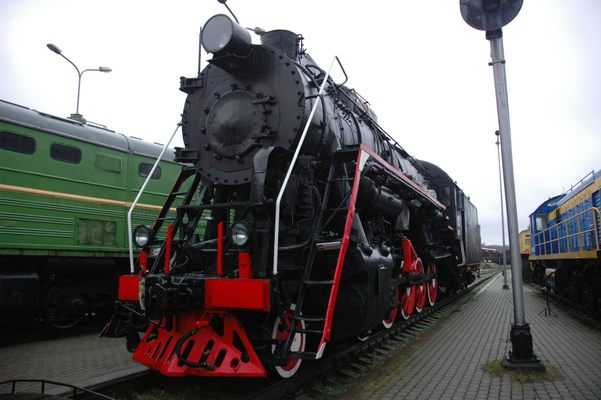
The Latvian Railway History Museum in Riga offers a captivating journey through the evolution of rail transport in Latvia. Established in 1994 and located in a former locomotive repair shop near the National Library, the museum showcases one of the largest collections of wide-gauge railway vehicles in the Baltics. Visitors can explore historic locomotives, wagons, uniforms, tools, and communication equipment, alongside rare photographs and documents that trace the development of the railway network since the 19th century2. The museum also hosts events and exhibitions in its 1880s depot, blending industrial heritage with cultural programming. Highlights include the opening of the Riga–Daugavpils line in 1861 and the modernization efforts of the 1920s and 1930s, which transformed travel across Latvia. With its engaging displays and educational activities, the museum invites all ages to discover how railways shaped the nation’s economy, society, and landscape. It’s a must-visit for history enthusiasts and curious travelers alike.
Riga LatviaThe Latvian Railway History Museum is situated at Uzvaras bulvāris 2A in the Pārdaugava district of Riga, just across the Daugava River from the city center. Housed in a historic 19th-century locomotive repair workshop and depot, the museum showcases an extensive outdoor collection of historic locomotives, carriages, and railway equipment, making it one of the largest exhibitions of broad-gauge railway rolling stock in Europe. It offers visitors a fascinating glimpse into the technological and cultural history of Latvia’s railways, with interactive displays and regular events such as steam engine demonstrations. The museum is conveniently located near landmarks including the National Library of Latvia (the Castle of Light) and Victory Park, making it an accessible and enriching stop for those exploring Riga’s cultural landscape. Its proximity to the bustling city center allows visitors to combine the museum visit with exploring outdoor cafes, shopping, and other sightseeing opportunities.
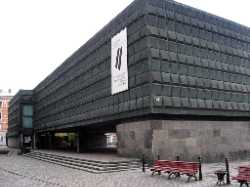 Museum of the Occupation of Latvia
Riga
Museum of the Occupation of Latvia
Riga
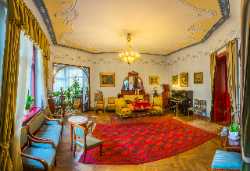 Art Nouveau Museum
Riga
Art Nouveau Museum
Riga
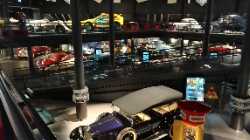 Riga Motor Museum
Riga
Riga Motor Museum
Riga
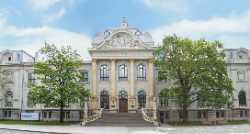 Latvian National Museum of Art
Riga
Latvian National Museum of Art
Riga
 Latvian National Opera and Ballet
Riga
Latvian National Opera and Ballet
Riga
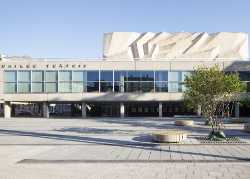 Daile Theatre
Riga
Daile Theatre
Riga
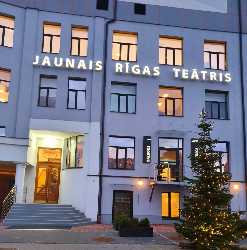 New Riga Theatre
Riga
New Riga Theatre
Riga
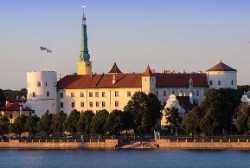 Riga Castle
Riga
Riga Castle
Riga
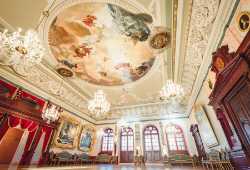 House of the Blackheads
Riga
House of the Blackheads
Riga
 Bastejkalns Park
Riga
Bastejkalns Park
Riga
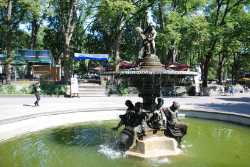 Vērmanes Garden
Riga
Vērmanes Garden
Riga
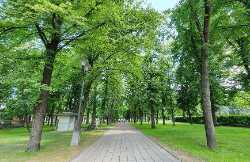 Esplanade Park
Riga
Esplanade Park
Riga
 Botanical Garden of the University of Latvia
Riga
Botanical Garden of the University of Latvia
Riga
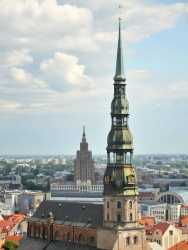 St. Peter's Church Tower
Riga
St. Peter's Church Tower
Riga
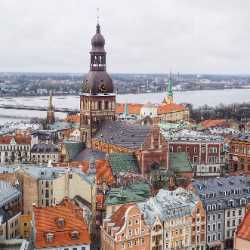 Riga Cathedral Tower
Riga
Riga Cathedral Tower
Riga
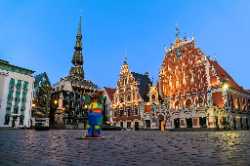 Rātslaukums
Riga
Rātslaukums
Riga
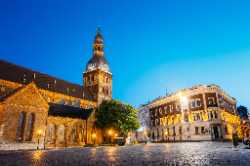 Dome Square
Riga
Dome Square
Riga
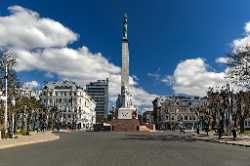 Freedom Monument Square
Riga
Freedom Monument Square
Riga
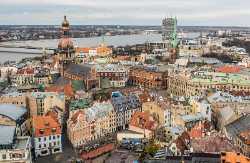 Riga Old Town
Riga
Riga Old Town
Riga
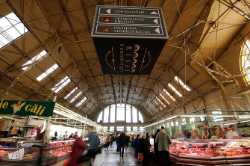 Rīgas Centrāltirgus
Riga
Rīgas Centrāltirgus
Riga
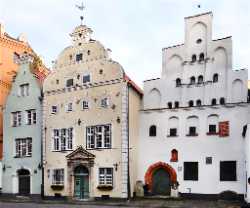 Three Brothers
Riga
Three Brothers
Riga
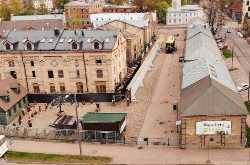 Riga Ghetto and Latvian Holocaust Museum
Riga
Riga Ghetto and Latvian Holocaust Museum
Riga
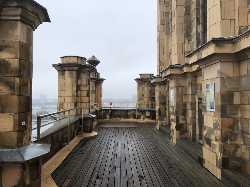 Latvian Academy of Sciences Observation Deck
Riga
Latvian Academy of Sciences Observation Deck
Riga
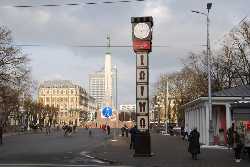 Laima Clock
Riga
Laima Clock
Riga
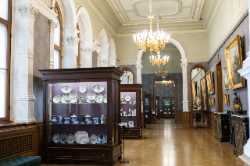 Art Museum Riga Bourse
Riga
Art Museum Riga Bourse
Riga
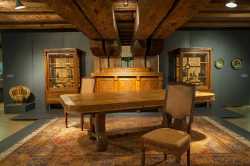 Museum of Decorative Arts and Design
Riga
Museum of Decorative Arts and Design
Riga
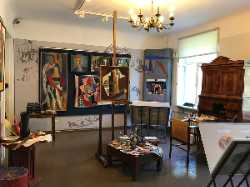 Romans Suta and Aleksandra Beļcova Museum
Riga
Romans Suta and Aleksandra Beļcova Museum
Riga
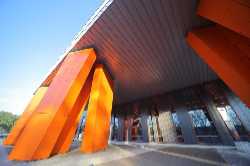 Museum Storage Facility and Forest of Sculptures
Riga
Museum Storage Facility and Forest of Sculptures
Riga
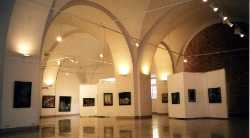 Art Museum Arsenāls
Riga
Art Museum Arsenāls
Riga
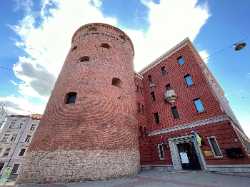 Latvian War Museum
Riga
Latvian War Museum
Riga
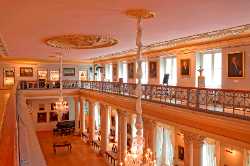 Museum of the History of Riga and Navigation
Riga
Museum of the History of Riga and Navigation
Riga
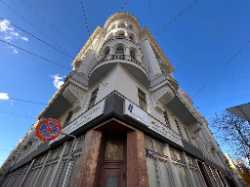 The Corner House
Riga
The Corner House
Riga
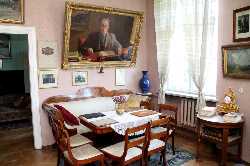 Andrejs Upīts’ Memorial Museum
Riga
Andrejs Upīts’ Memorial Museum
Riga
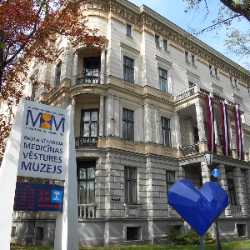 Pauls Stradiņš Museum of the History of Medicine
Riga
Pauls Stradiņš Museum of the History of Medicine
Riga
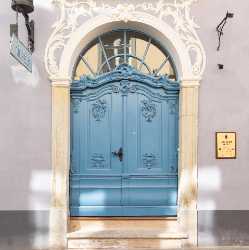 Latvian Museum of Pharmacy
Riga
Latvian Museum of Pharmacy
Riga
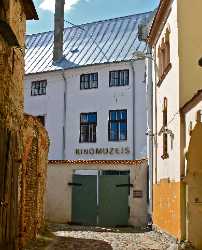 Latvian Film Museum
Riga
Latvian Film Museum
Riga
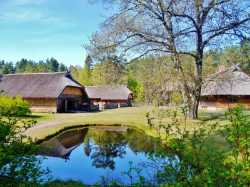 The Ethnographic Open-Air Museum of Latvia
Riga
The Ethnographic Open-Air Museum of Latvia
Riga
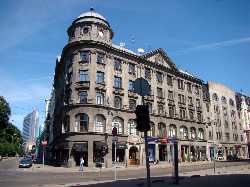 Krišjānis Barons Memorial Museum
Riga
Krišjānis Barons Memorial Museum
Riga
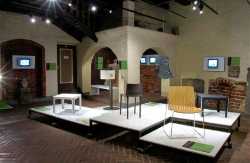 Latvian Museum of Architecture
Riga
Latvian Museum of Architecture
Riga
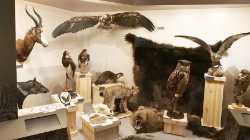 Latvian Museum of Natural History
Riga
Latvian Museum of Natural History
Riga
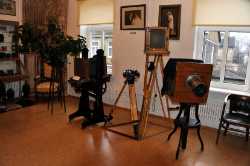 Latvian Museum of Photography
Riga
Latvian Museum of Photography
Riga
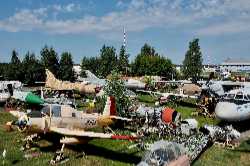 Riga Aviation Museum
Riga
Riga Aviation Museum
Riga
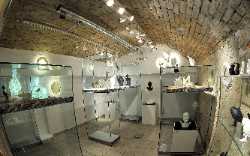 Riga Porcelain Museum
Riga
Riga Porcelain Museum
Riga
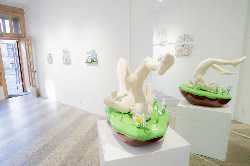 LOOK! Art Gallery
Riga
LOOK! Art Gallery
Riga
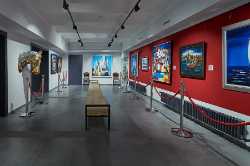 Art Platz
Riga
Art Platz
Riga
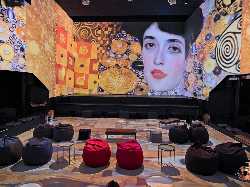 Digital Art House
Riga
Digital Art House
Riga
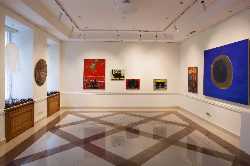 MuseumLV Gallery
Riga
MuseumLV Gallery
Riga
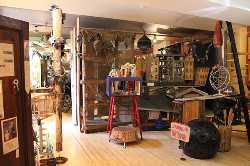 Planetarium at Science Centre Tehnoannas pagrabi
Riga
Planetarium at Science Centre Tehnoannas pagrabi
Riga